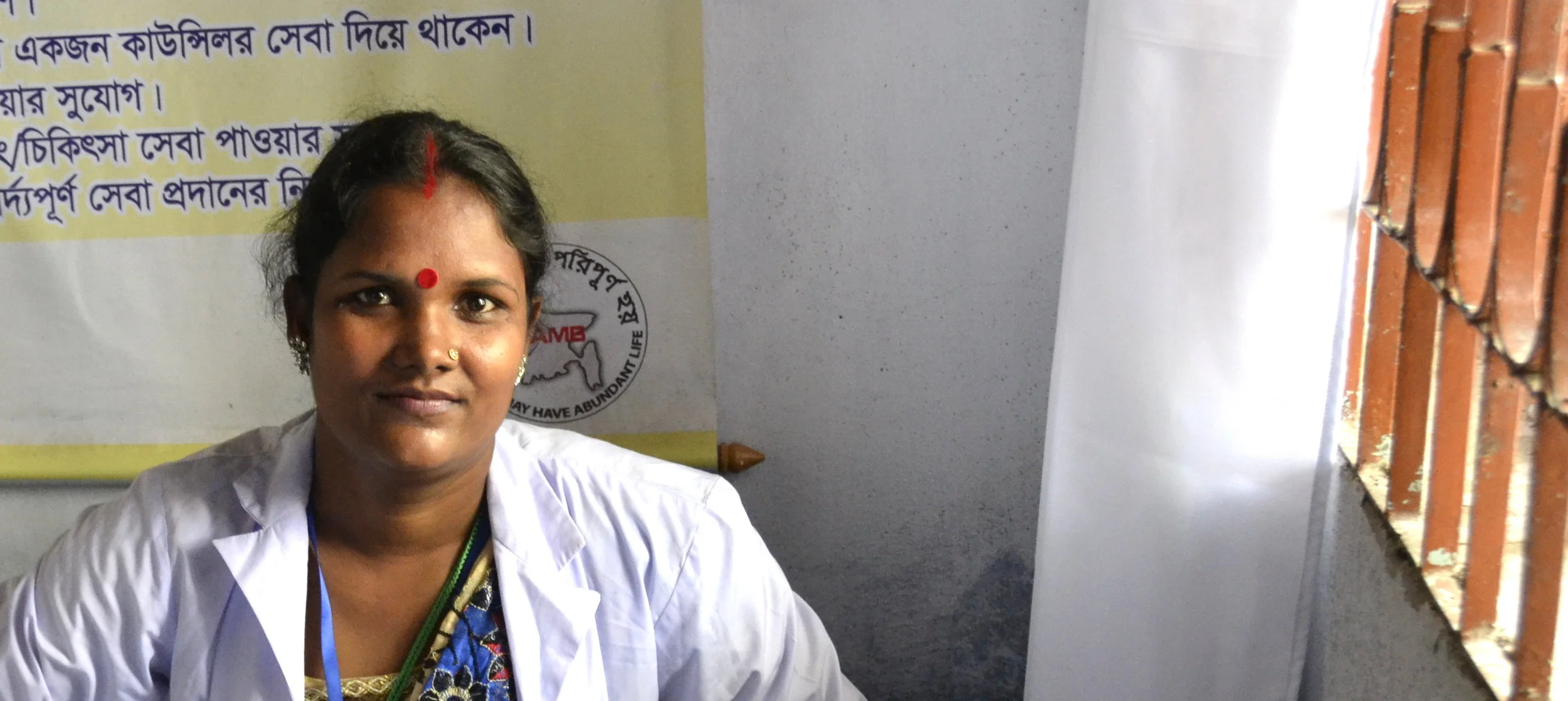ASHIRBAD - project proposal and report
Grant Reference: UKAD-INN-081
Full Title: Improving access to effective sexual and reproductive health services and strengthening the ability to exercise sexual and reproductive health rights for adolescents aged 11-19 in Badarganj sub-district, in rural north-west Bangladesh.
Brief Title: Improving access to effective sexual and reproductive health services for adolescents aged 11-19 in Badarganj sub-district, Bangladesh.
Acronym: ASHIRBAD (Bengali: blessing) – to be used in correspondence with LAMB.
Project Outline: The aim is to reach 16,000 adolescent girls and 8,000 boys, which represent about 50% of the adolescent population, the rest being reached indirectly. Across ten unions in Badarganj LAMB will:
• do an extensive survey of 5 unions looking at the family demographics. LAMB has already performed base line surveys in the other 5 unions 5 years ago, and these will be resurveyed (in another LAMB project).
• provide life skill training for 5000 adolescents, hoping that they will become peer mentors for local groups.
• run 1200 groups of adolescents, using trained peer volunteers – organised by 24 adolescent facilitators.
• improve the functioning of health service providers. There are 44 mainly government health posts including 10 Safe Delivery units. The staff will be trained (or have training refreshed) to do family planning, antenatal care, postnatal care, post abortion care, treat sexually transmitted diseases, and primary health care, with an emphasis on treating adolescents with respect and knowing when onward referral is needed. The 10 SDUs will have greater expertise and include counselling for those experiencing gender based violence.
• build networks with schools and education authorities.
• motivate the community through training for parents, teachers and community leaders
train CBOs and community leaders to create advocacy.
• run campaigns against gender violence, and use TV and video for dissemination.
Expected outcomes:
Two types of change in relation to child marriage within the project timeframe:
a) change in relation to the views/attitudes developed amongst the adolescents, family and community members on child marriage
b) delay in child marriage (reduction in marriage rates amongst girls under 18 years of age).
We hope that the above will mean that girls remain longer in education, and that maternal mortality and neonatal mortality (stillbirths and deaths within a week of birth), will decrease. We will be looking to see if gender based violence decreases, both because the new brides will be older and also because of new respect within the relationship following group membership where such things will be discussed.
Measurable outcomes are:
1 Number and percentage of target married adolescent girls (ages 11-19) who report using a family planning method.
2 Number and percentage of target adolescent girls (ages 11-19) who have attended at least four times for antenatal care during pregnancy.
3 Number and percentage of births given by target adolescent girls attended by a skilled birth attendant.
4 Number and percentage of target adolescent boys and girls (aged 11-19) attending Adolescent Sexual and Reproductive Health Service, who report that their health care provider showed them respect and explained things carefully.
5 Number and percentage of a) target adolescent boys and girls (aged 11-19), b) female and male parents/guardians and c) male and female community leaders who express a positive attitude to decreasing child marriage and delaying first pregnancy.
Grant award: DfID award is £249,365 over 3 years to July 2018, payable in arrears.
LAMB will provide £19,262, LHCF £2,040 and local communities will pay community worker salaries of £22,885.
The total project cost is £293,552.
Report of outcomes and achievements of ASHIRBAD project
The 3 year ASHIRBAD project was finished Aug 1st 2018.
24,000 adolescents had completed a 16 module course in Adolescent Sexual & Reproductive Health, meeting monthly in groups. 5000 had completed an additional course and become peer mentors
100 health care staff had received training in adolescent friendly sexual and reproductive health care.Each of the 10 unions (council areas) in Badarganj sub-district had a functioning health centre doing antenatal care, post natal care, sexual health, family planning and primary care. 20 of the 29 peripheral health posts had made referrals related to gender based violence, sexually transmitted diseases and post abortion care.
The number of married adolescents using contraception rose from 44% to 55%
The number of pregnant adolescents attending antenatal clinic at least 4 times during their pregnancy rose from 50% to 77%
The number of adolescents giving birth with a skilled birth attendant rose from 50.5% to 73%
The number of adolescents attending a sexual & reproductive health service 1% to 23% (12,677) – there being very little service before the project started.
In 20015 only 20% of those who went said they were shown respect, but in the last year of the project 98.5% said that they were treated with respect by the clinic staff.
At the beginning of the project 80% of adolescents sampled, 52% of parents, and 35% community leaders expressed a positive attitude to decreasing child marriage. At the end of the project 94% of adolescents, & 75% of parents and community leaders wanted to see child marriage ended.
200 school teachers had received training to continue teaching the module contents.
Over 2000 parents and 450 community leaders had received training about child marriage, gender based violence, and pregnancy delay. Village theatre productions about these issues were viewed by 4700 people.
There was evidence of 66 marriages of young girls that were stopped by their peers with the help of village leaders – enabling each of these girls to remain at school. In 2016 there were 854 adolescent marriages, in 2017 there were 706, & in Jan-june of 2018 there were 241.
LAMB Health sent an additional £35,902 to meet additional costs and exchange losses

